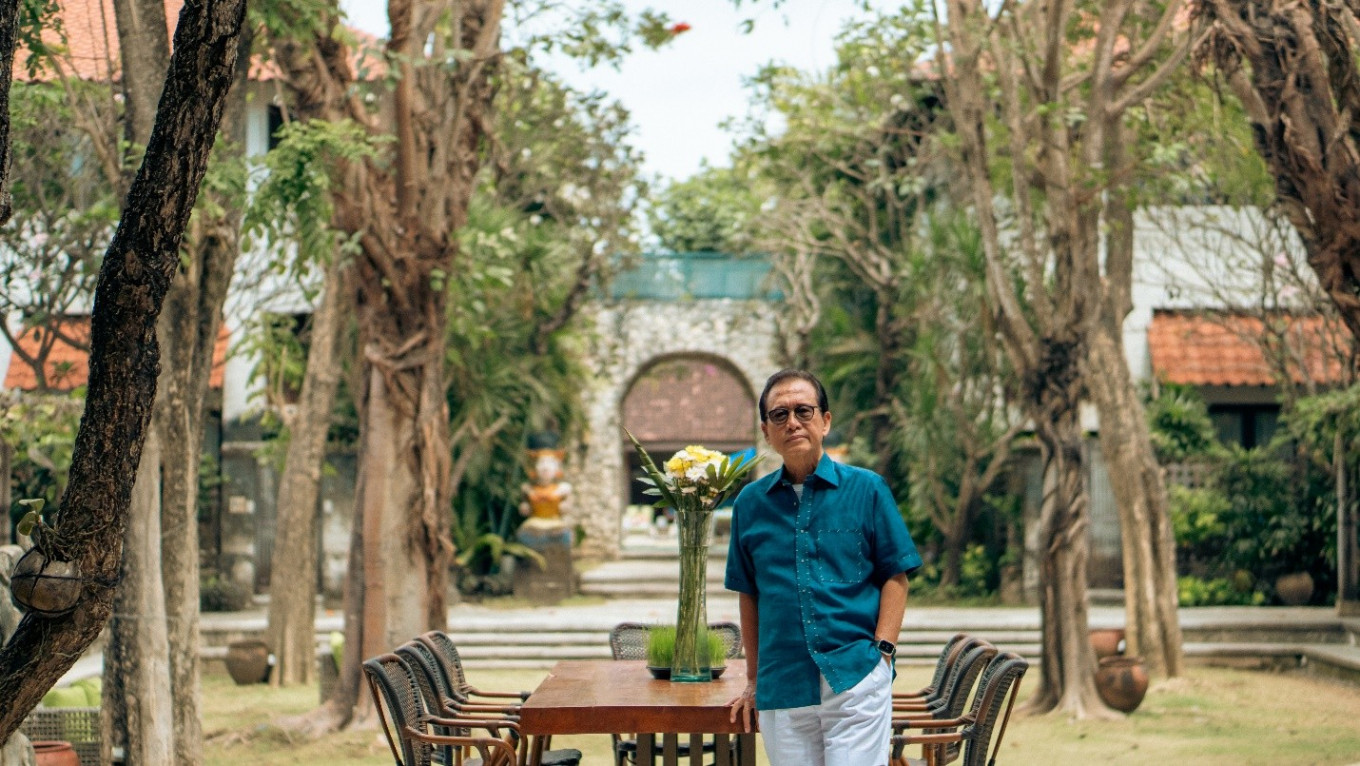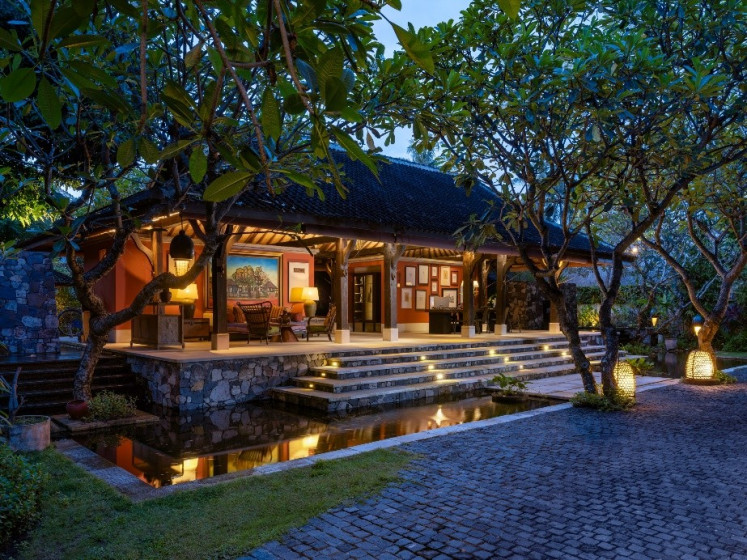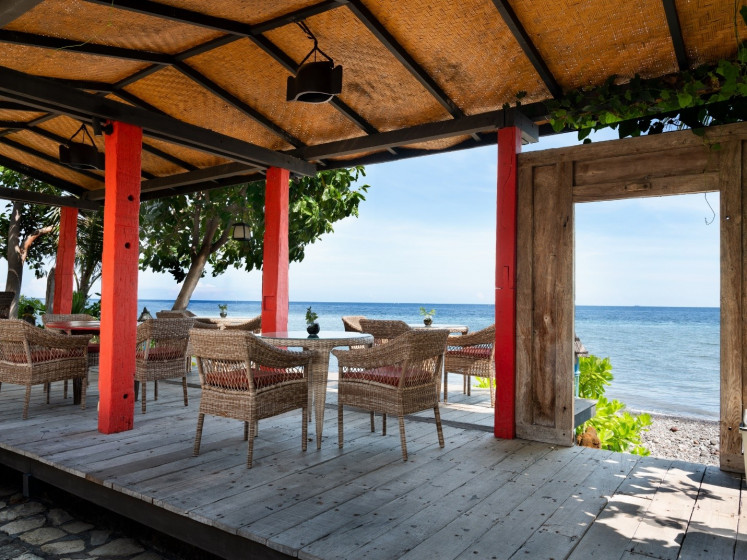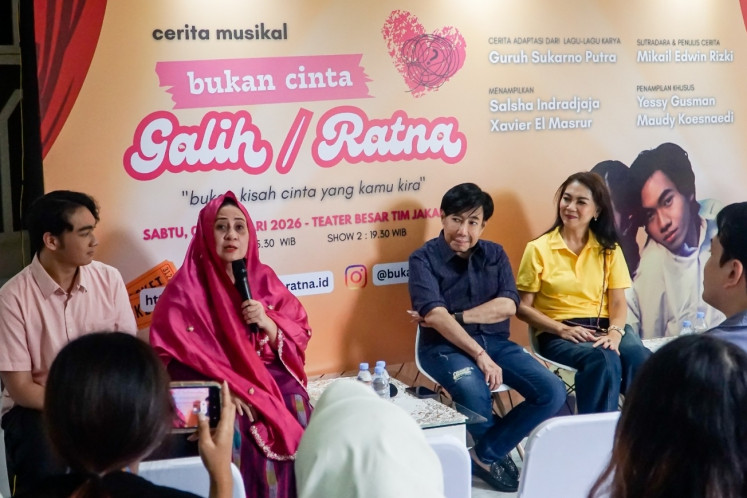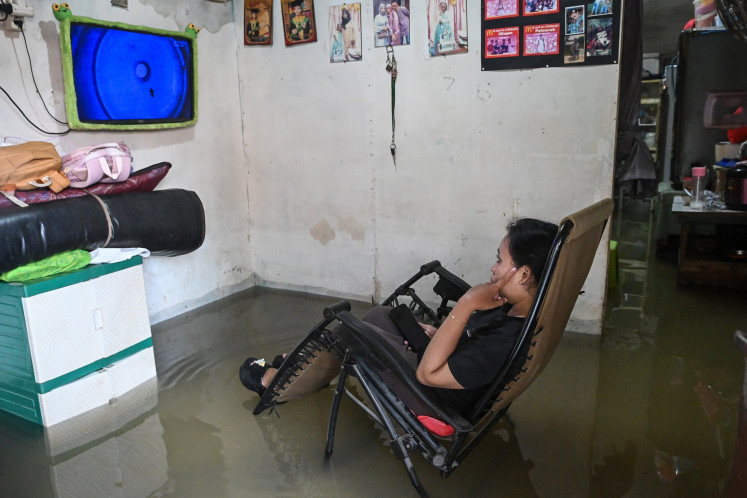Popular Reads
Top Results
Can't find what you're looking for?
View all search resultsPopular Reads
Top Results
Can't find what you're looking for?
View all search resultsSudamala Resorts CEO: Resorts business creates multiplier effect, involving SMEs
Change text size
Gift Premium Articles
to Anyone
T
he vast expanses of the Indonesian archipelago are blessed with immense tourism potential, but the country has yet to unlock this potential to the fullest extent. This is due, in part, to a lack of effort in promotion, according to Sudamala Resorts CEO Ben Subrata.
Ben stated that Indonesia, Malaysia and Thailand have all equally recovered from the COVID-19 pandemic, but the tourist sectors in both nearby countries have achieved faster recoveries and higher levels of performance thanks largely to their all-out promotional endeavors.
Indonesia, spanning from Sabang in Aceh to Merauke in Papua, is rich in terms of natural wonders and cultural attractions. “So, I hope that the government can continually promote more attractive destinations overseas by, for example, participating in conferences and other important events. We can harness our tourism potential,” he said.
Sudamala Resorts, which has developed Sudamala Resorts in Bali, Lombok, West Nusa Tenggara (NTB) and Flores & Seraya Kecil Island, East Nusa Tenggara (NTT), continues to expand its business in the three provinces to capitalize on the natural beauty and cultural heritage in Indonesia’s eastern regions.
According to Ben, hotels, resorts, accommodations and other tourism-related property businesses generate demand for products and services from local communities, which creates a multiplier effect, which means that this investment stimulates local economic activity.
Such variety of foods including vegetables, eggs, meat, poultry, fish and fruit that remote hotels or resorts need for their guests are purchased from local villagers, mostly small and medium enterprise (SME) players.
“We create subsequent activities that provide a livelihood for the people around our resorts,” said Ben, founder of Sudamala Resorts.
“If you look at the landscape of activities, small and medium enterprises are a key beneficiary of tourism,” he argued.
“Tourism activities need, for example, transportation services, tourist guides, locally made souvenirs and a lot of things like that, which can be met by partnering with local SMEs. That’s part of the multiplier effect,” he said.
“Even their daily amenities, such as soap, shampoo and body lotion, are often made by small enterprises,” he said.
“The large corporations probably are only involved in the big investment of hotels and resorts,” he noted.
Ben stressed that Sudamala Resorts not only contributes to the development of the local economy through paying taxes to respective provincial administrations, but also through engaging communities through partnerships with SMEs.
“The well-being of the community around us is important as well. The participation of the local community in our endeavors or activities is a pivotal part of our activities. So, we want to be able to contribute to that. That is a very direct contribution,” he pointed out.
According to Ben, the majority of staff in every resort that Sudamala operates, from Labuan Bajo, NTT, to Lombok and Bali are recruited from local communities. “We train them to increase their skillsets,” he said.
Currently, however, tourism is still facing the challenge posed by government budget restraints, which led to a reduction in spending on events hosted at hotels and restaurants, which has led to a decrease in meeting, incentive, convention and exhibition (MICE) events.
The efficiency policies have caused a 15 to 20 percent decline in the business of Sudamala Resorts, especially in Labuan Bajo, an area with more MICE businesses.
“I can understand the objective of efficiency measures, but I wonder whether the government has calculated or assessed the implications of such a policy. I hope that the government will somehow amend its policy to be more supportive to local economies,” he said.
Ben explained that nature and culture, exceptional services and sustainability were the three pillars upon which Sudamala Resorts was founded.
Each resort harmonizes with its surroundings, showcasing the unique beauty and heritage of each locale, according to Ben.
Indonesia is blessed with natural wealth, as seen in towns such as Labuan Bajo, a primary gateway to Komodo National Park and Komodo Island, home to the Komodo dragon, the largest lizard species on earth.
Komodo island is also well-recognized for its amazing underwater beauty, with its marine species and coral reefs. “We highly cherish this beauty and strive to look after it,” said Ben, who is a keen diver.
He said the company went beyond expectations with personalized service, crafting unforgettable guest experiences.
Offering an example, he recalled that one day, a Singaporean guest asked where he could buy kue lapis (layer cake) in Sanur, Bali, as his pregnant wife yearned for it.
“At the end of the day, when they had checked in to our resort, our staff delivered the cake to their room for free, much to their delight” he said, adding: “We want to go that extra mile for our guests.”
Sustainability
With respect to principle of sustainability, which Sudamala Resorts has prioritized, Ben explained that they practice this value in a variety of ways, including reducing electricity and water use, planting mangrove plants, conserving coral reefs, recycling used cooking oil and making use of renewable energy power generation.
As part of the company’s sustainability initiatives, Ben revealed that the used cooking oil was recycled before a separate company took it for other uses. He said that 90 percent of the resorts’ consumption of fuel would be cut down and replaced it with solar energy at Sudamala Resort, Seraya. “For us, sustainability is not a choice, it is a must. Sustainability or sustainable tourism is not just a concept, but it is a part of our daily routines,” he said.
The development of Sudamala Resorts kicked off in 2011 and currently, five lifestyle boutique hotels are in operation. They include Sudamala Resorts in Sanur and Amed Lodge by Sudamala Resorts, both in Bali, Sudamala Resort in Senggigi on Lombok, Sudamala Resort in Labuan Bajo and Sudamala Resort Seraya in Flores.
The preservation of the natural environment and scenic beauty are some of Sudamala Resorts reasons for expanding its business, particularly in the hospitality and tourist sector in Ubud, according to Ben.
Ben said that Ubud played a critical role in the tourist sector. Ubud is rich in traditions, culture and natural beauty, which attracts both local and international tourists.
“The infrastructure development and economic growth carried out by the Gianyar regency government have encouraged us at Sudamala Resorts, which has been successful in Sanur, Amed, Senggigi, Labuan Bajo and Seraya Kecil, Flores,” he said.
Ben also unveiled the Sudamala Resorts future plan, with a development and expansion focus on the aforementioned three provinces in eastern Indonesia, as the group is keen to understand the locations in terms of nature, typical traditional arts, building architecture and cultural specificity.
Labuan Bajo and Seraya Resort are located in Flores and many who love Flores look forward to exploring other parts of Flores. “That is why we want to launch a new product, a new resort which is a bit further away but very close to nature and to unique cultural villages,” he said.
“We will develop luxurious tents, Sudamala Tented Resorts, which blend very well with nature,” he said, adding, “We will also build similar resorts in Bali and Lombok.”
“Luxury does not just mean nice facilities, but also privacy. The design and the master planning should allow for privacy,” he said.
“We want to have maximum greenery in the development. So again, the idea is to give our guests luxurious tents in a private setting. The location will be around important sites, not too far from places of interest,” he revealed.
Ben explained how the lifestyle boutique resorts that Sudamala Resorts develops have a positive impact on local economies as he mentioned earlier. But delivering exceptional services also means employing more people to do the work, compared to a normal hotel.
According to Ben, incorporating local culture and heritage can enhance or boost tourist experience, which visitors can witness from the resort design. “We adopt local architecture, local materials like the fabric and ikat [weaving],” he pointed out.
As for arts and cultural heritage, he said, “in Bali, we promote traditional Balinese dancers and we will do the same in our other resorts in different provinces.”
“We adapt local culture to our daily delivery of services to the guests,” he explained.
Asked if he had a special message, he said, “Come and experience travel destinations in the eastern part of Indonesia. They will surprise you, the beauty, the warmth of the people and the nature.
“People think of Flores, for example, as a sunny beachfront environment where it is hot all the time. But there are places like the one that we are going to build, where it is so cold at night that you need a thick blanket. So, there are many parts of Flores that are exceptionally beautiful.”

